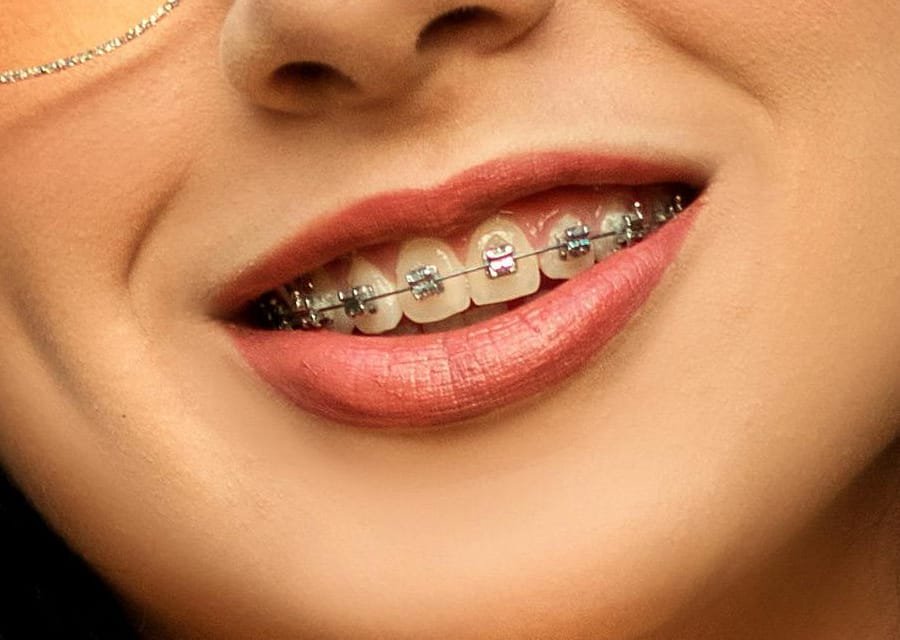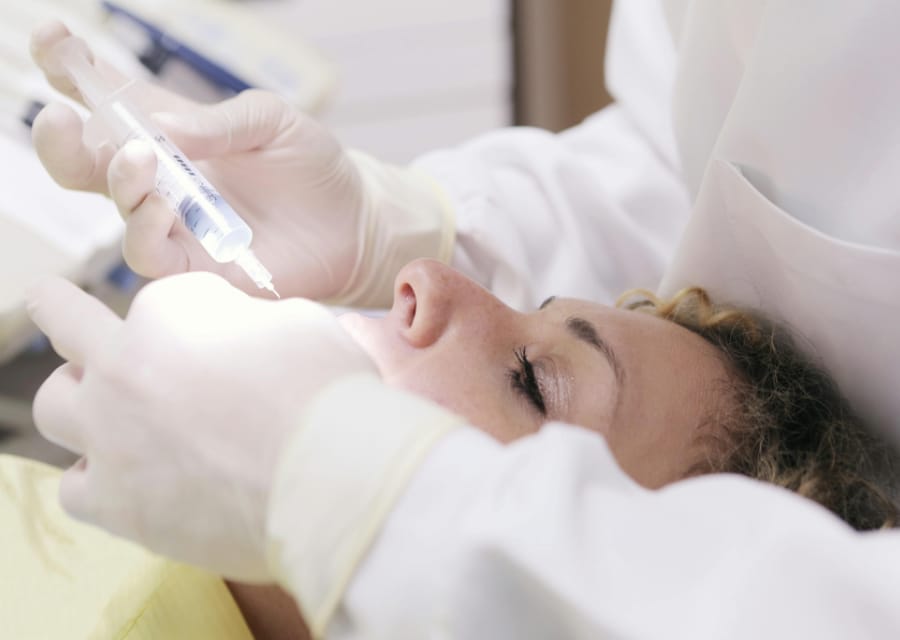
Speech is an essential part of communication and when we experience difficulty speaking, it can affect both our personal and social lives. While speech problems can arise from various causes, many people are surprised to learn that dental issues can play a significant role. As a dental surgeon, I often see patients who struggle with speech difficulties due to problems with their teeth, gums or jaw alignment.
In this blog post, we’ll explore how dental issues can affect speech, the types of dental problems that may contribute to speech difficulties and the treatments available to improve both oral health and speech clarity.
How Dental Issues Can Affect Speech
Your teeth, jaw and mouth work together to help you speak clearly. Any problems with these oral structures can cause speech issues. When your mouth and teeth are not in optimal alignment or condition, it can interfere with how you form sounds and words. Here’s how different dental problems can impact speech:
- Misaligned Teeth (Malocclusion)
Malocclusion refers to an improper bite, where the upper and lower teeth do not align properly. This can lead to several speech issues, such as:
- Difficulty pronouncing certain sounds: Teeth are essential for producing certain speech sounds, like “s,” “sh,” “th,” and “f.” If your teeth are misaligned, it may be hard to form these sounds correctly.
- Lisping: A lisp occurs when the tongue protrudes between the teeth when speaking. This is often due to an open bite (where the upper and lower teeth don’t meet) or crowded teeth, making it difficult to pronounce “s” and “z” sounds.
- Tooth Loss
Losing teeth, especially the front or back teeth, can affect speech clarity. Teeth help us form sounds, particularly consonants. For example:
- Loss of front teeth: Missing front teeth can lead to difficulty pronouncing words that involve “f” and “v” sounds, as the upper teeth touch the lower lip to produce these sounds.
- Loss of back teeth: The back molars are necessary for grinding food, but they also help with making certain sounds like “k,” “g,” and “ch.” Missing back teeth can lead to a reduction in speech clarity.
- Jaw Alignment Issues
The position of the jaw plays a significant role in speech. Issues with jaw alignment, such as an overbite, underbite or crossbite, can impact how the teeth come together when you speak. These alignment problems can cause:
- Difficulty with articulation: Misaligned jaws can make it harder to pronounce words correctly. For example, a person with an underbite may have difficulty pronouncing “t” or “d” sounds clearly.
- Mouth breathing: People with jaw issues may have trouble breathing through their nose, leading to mouth breathing, which can further affect speech. Chronic mouth breathing can also lead to dry mouth, which can make it harder to speak clearly.
- Cleft Lip or Cleft Palate
A cleft lip or cleft palate is a congenital condition where the upper lip and/or the roof of the mouth (palate) does not fully form during fetal development. This can lead to speech difficulties, as air may escape through the gap in the lip or palate while speaking. Children with cleft lip and/or palate may have problems with articulation, especially with sounds that require pressure buildup in the mouth, like “p,” “b,” and “m.”
- Tongue Tie (Ankyloglossia)
A tongue tie occurs when the frenulum (the tissue that connects the underside of the tongue to the floor of the mouth) is too tight or short. This can limit the movement of the tongue, making it difficult to pronounce certain sounds. For example, tongue tie can affect the pronunciation of “t,” “d,” “l,” and “r” sounds. While tongue tie is more commonly recognized as a problem for infants during breastfeeding, it can also affect speech in children and adults if not treated early.
How Dental Treatment Can Improve Speech
Fortunately, many speech difficulties caused by dental issues can be improved with appropriate treatment. As a dental surgeon, I often recommend a combination of dental procedures and therapy to help patients regain clear speech. Here’s how dental treatments can address speech-related problems:
- Orthodontics (Braces and Aligners)
If malocclusion (misaligned teeth) or jaw misalignment is affecting speech, orthodontic treatment may be the solution. Braces or clear aligners (like Invisalign) can help reposition the teeth and jaw over time, improving both appearance and speech. For example:
- Correcting a lisp: Braces can close gaps or realign teeth that cause a lisp. As the teeth move into their proper positions, speech clarity often improves.
- Improving articulation: By aligning the bite, orthodontic treatment can make it easier to form sounds correctly, especially those that require the tongue to touch specific parts of the mouth.
- Dental Implants and Bridges
If tooth loss is contributing to speech problems, replacing missing teeth with dental implants or dental bridges can restore function and improve speech. Implants and bridges help fill gaps left by missing teeth, allowing the tongue to contact the roof of the mouth or other teeth, which is essential for pronouncing certain sounds clearly.
- Speech Therapy
In addition to dental treatments, speech therapy can help correct articulation problems. A speech therapist will work with patients to improve their pronunciation and help retrain the tongue and mouth muscles to produce sounds properly. This is especially helpful for children who struggle with speech due to tongue tie, cleft lip or palate issues.
- Frenectomy for Tongue Tie
For children or adults with tongue tie, a simple procedure called frenectomy can be performed to release the tight frenulum and allow for better tongue movement. This procedure is often quick, performed in a dental office and can immediately improve the ability to form speech sounds.
- Corrective Jaw Surgery
In cases of severe jaw misalignment that cannot be corrected with orthodontics alone, jaw surgery may be necessary. This is typically done in collaboration with an oral surgeon and can significantly improve both function (like biting and chewing) and speech. After surgery, many patients find that their ability to speak clearly improves as their jaw and teeth align better.
When to See a Dental Surgeon
If you or your child is experiencing speech difficulties that may be linked to dental issues, it’s important to seek professional help. A dental surgeon or orthodontist can assess your teeth, jaw and overall oral health to determine whether dental problems are contributing to the speech issue. If dental treatment is needed, your dentist will develop a personalized plan to address the underlying causes of speech difficulties.
It’s especially important to seek treatment early if the issue involves children, as speech problems can impact their academic and social development. Early intervention can lead to better outcomes and help ensure clear speech as the child grows.
Conclusion
Speech difficulties can be frustrating and affect various aspects of life, but it’s important to recognize that dental issues often play a key role. From misaligned teeth and jaw problems to tongue tie and tooth loss, oral health issues can significantly impact how we speak. The good news is that many of these issues can be treated effectively with dental interventions such as braces, dental implants, frenectomy and even jaw surgery.
If you or your child is struggling with speech clarity, it’s worth visiting a dental professional to determine whether dental issues are contributing to the problem. With the right treatment, you can improve not just your oral health, but your ability to speak clearly and confidently.
To schedule an appointment at ‘Sukumar Dental Clinic’ call +91-7418210108 or WhatsApp Dr. Sukumar at +91-9655225002. We take pride in having the top dental clinic in Palayamkottai, Tirunelveli. Alternatively, you can email us at info@sukumardental.com


